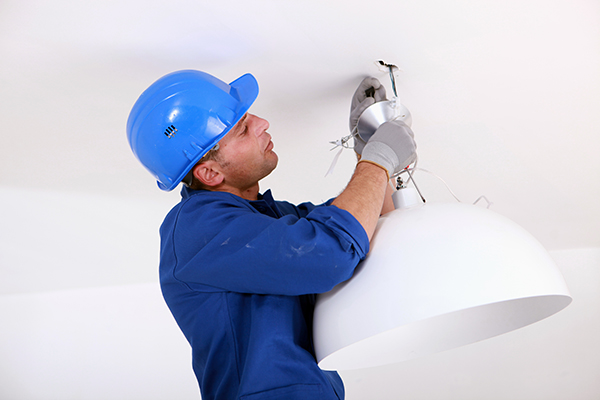According to the Electrical Safety Foundation International (ESFI) , home electrical fires account for an estimated 51,000 fires each year and $1.3 billion in property damage. In fact, electrical distribution systems are the third leading cause of home structure fires. As homeowners, it’s easy to take the electrical system for granted because it’s not as visible as other home systems, but maintaining electrical components is vital to the safety of your household. Here are some tips:

- Install smoke detectors and make sure they are operable at all times. The National Fire Protection Association (NFPA) recommends installing smoke alarms inside each bedroom, outside each sleeping area, and on every level of the home, including the basement. On levels without bedrooms, NFPA recommends installing alarms in the living room (or den or family room), near the stairway to the upper level, or in both locations. Test smoke detectors regularly and replace batteries often.
- Make sure all electrical installations and repairs are performed by qualified professional electricians.
- Contact a qualified electrician if you notice flickering lights, hear buzzing or sizzling sounds, or if circuit breakers trip often or repeatedly.
RELATED: Four Signs That Something May Be Wrong In Your Home
- Periodically inspect electrical outlets for discoloration or to see if they are warm when touched as both situations could indicate problems.
- Instead of overloading outlets, have a qualified electrician install additional ones. Use extension cords only on a temporary basis.
- Always use light bulbs with the recommended wattage for each light fixture or lamp.
- Unplug small appliances and electrical devices when not in use.
- Ask a qualified electrician to explain your electrical panel and show you how it works. You’ll be more comfortable understanding the fuses or circuit breakers and can be more likely to spot a problem if you’re familiar with the box.
- Clearly label your electrical panel, and make sure it isn’t blocked for easy, quick access when needed.
RELATED: 8 Benefits Of An Energy-Efficient Home
- Consider having ground-fault circuit interrupters installed in outlets that could get wet, such as those in kitchens, bathrooms, and laundry rooms. If you have small children, consider having tamper-resistant outlets installed for safety.
- Unplug any items that have frayed wires immediately.
- Avoid running electrical cords and wires underneath rugs, furniture, or fabric.
How often you should have your home’s electrical system inspected can depend on the age of your house, number of appliances, renovations, and other factors. Ask your electrical provider for guidance about inspection frequency. Of course, if you have any doubts about the wiring, panel, outlets, or other components, contact a qualified electrician immediately to perform an inspection.
While HSA home warranty coverage varies depending on where you live, electrical systems are typically available for coverage under the standard plan along with central air conditioning and heating systems, kitchen appliances, clothes washers and dryers, plumbing systems, and roof leaks. For more information about HSA home warranty coverage and how it can help protect your home’s electrical system and other important components, visit onlinehsa.com today.